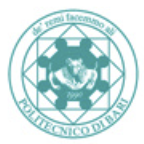Introduction
Polytechnic Institute of Bari is a public polytechnic university in Bari, Puglia, Italy. It is characterized by scientific and technological education courses. It is the youngest of the three polytechnic universities in Italy and the only polytechnic university in southern Italy.
Overview
Number of students and faculty: In 2018, there were approximately 10,072 students enrolled and 275 academic staff. Today, the university has about 290 researchers, professors and 295 administrative staff, and about 12,000 undergraduate and graduate students.
Professional settings: There are 5 major schools, offering undergraduate, master's and doctoral courses, covering civil engineering, construction engineering, industrial engineering, information engineering and other fields.
History and establishment time
The Polytechnic University of Bari was established on August 7, 1990 in accordance with Law No. 245. Its predecessor was the School of Engineering and the School of Architecture of the University of Bari. The history of the School of Engineering can be traced back to the winter of 1943-44.
School Strength
Faculty: There are about 290 researchers and professors who have rich teaching and research experience in engineering, architecture, science and other fields, and can provide students with professional guidance and cutting-edge knowledge.
Scientific research level: The school's scientific research activities cover basic research and applied research, and have achieved remarkable results in many disciplines. For example, the research results in engineering technology, architectural design and other aspects have provided strong support for the development of related industries. At the same time, it has also actively cooperated with enterprises and institutions to promote the transformation and application of scientific research results.
International cooperation: It has established cooperative relations with many internationally renowned universities, such as Cambridge University, and carried out projects such as student exchange, teacher visits, and scientific research cooperation, which has enhanced the school's international influence and students' international vision.
Institutional nature
Public university.
Educational philosophy
Focus on research quality and educational innovation, emphasize internationalization and enrich higher education courses, and is committed to cultivating professionals with innovative and practical abilities to meet the needs of social and technological development.
Key laboratories and disciplines
Key laboratories: Although no specific key laboratories have been identified, departments such as the Department of Mechanical Engineering and the Department of Mathematics and Management have set up multiple offices and laboratories in the Giapigia area of Bari, providing strong support for scientific research and teaching in related disciplines.
Advantageous disciplines: Architecture ranks 151st in the world, Building Environment and Equipment Engineering ranks 151st in the world, Civil Engineering ranks 201st in the world, Mechanical Engineering ranks 301st in the world, Electrical Engineering ranks 401st in the world, and Electronic Information Engineering ranks 401st in the world. 401.
Faculty
The school has 5 major departments, including the Department of Electrical Engineering and Computer Engineering, the Department of Mechanical Engineering, Mathematics and Management, the Department of Civil Engineering, Environmental Engineering, Architectural Engineering and Chemistry, the Department of Architecture, and the Department of Physics.
Ranking
2024 QS World University Rankings: 556th.
2024 TIMES World University Rankings: 501st.
Expenses
Public universities are free of tuition fees, but a certain registration fee is required each year, which is about 1000-2000 euros.
Campus Environment
Geographic location: Located in Bari, the capital of Bari Province in southeastern Italy, it is located on the fertile plains bordering the Adriatic Sea. It is Italy's main port to the Balkan Peninsula and the Eastern Mediterranean, and is also the economic and cultural center of the Puglia region.
Teaching facilities: The campus is mainly concentrated in the Quagliariello campus of the University of Bari, with modern buildings, lecture rooms, research laboratories, study rooms and other teaching facilities, providing students with a good learning environment.
Living facilities: There are leisure facilities and Internet points on campus, and the living facilities around the campus are complete, including student dormitories, canteens, supermarkets, etc., to meet students' daily needs.
-
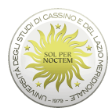
University of Cassino and Southern Lazio
-

University of Campania Luigi Vanvitelli
-
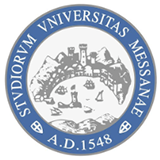
University of Messina
-
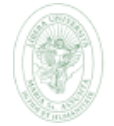
Libera Universita degli Studi Maria SS. Assunta di Roma (LUMSA)
-
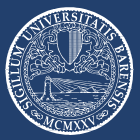
University of Bari Aldo Moro
-
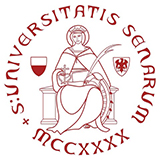
University of Siena
-
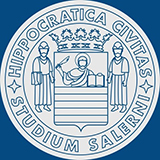
University of Salerno
-
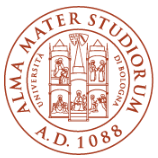
University of Bologna
-
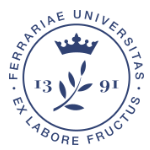
University of Ferrara
-
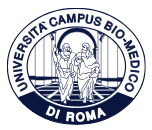
Campus Bio-Medico University of Rome
-

Mesoamerican University
-

Istmo University
-

Mariano Galvez University of Guatemala
-

Regional University of Guatemala
-

Galileo University
-

Francisco Marroquín University
-

Rafael Landívar University
-

University of the Valley of Guatemala
-

University of San Carlos of Guatemala
-

Technological Institute of Tlaxcala Plateau
-

Golfo University
-

Technological University of South Sonora
-

Technological University of Huejotzingo
-

Tizimín Institute of Technology
-

Chilpancingo Institute of Technology

